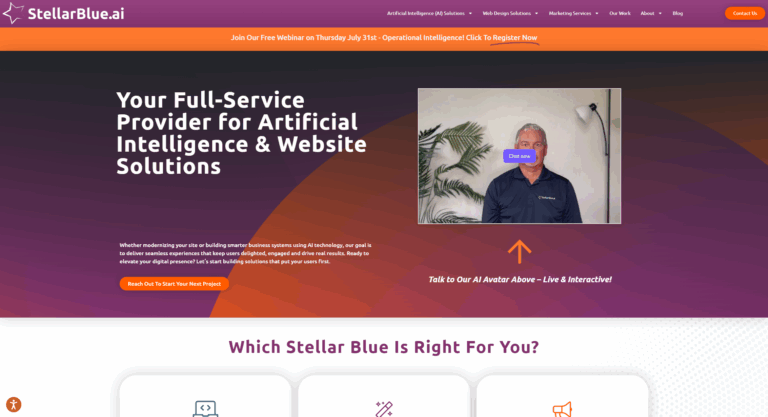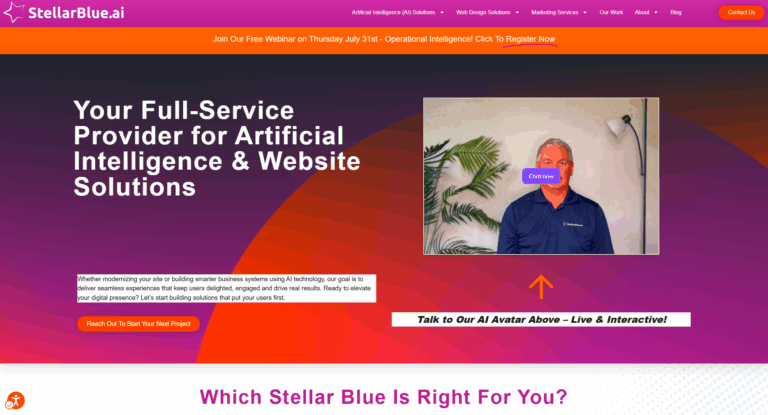Website Accessibility and Legal Protection with ADA Website Compliance
Who Needs ADA Website Compliance?
This isn’t optional — it’s essential
Miami Lighthouse for the Blind v. Florida Department of Health (2021)
The Florida Department of Health was sued by Miami Lighthouse for the Blind for having a COVID-19 vaccine registration website that was not accessible to screen readers. Blind users could not independently book vaccine appointments. The case resulted in immediate accessibility updates and served as a warning that healthcare sites must be inclusive during critical public health operations.
Educational Institution Litigation (2023–ongoing)
Hasbro ADA Lawsuit (2023)
Avetisyan v. New York Design Center, Inc. (2020)
Murphy v. Academy Museum Foundation (2025)
Why ADA Compliance Matters


ADA Compliant “Vision Impaired Profile” Option
- Text that screen readers can interpret
- Proper color contrast for users with low vision
- Keyboard-only navigation support
- Captions for all video content
ADA Compliance Solutions
Legal Protection
Minimize the risk of ADA-related lawsuits while showing your audience you care about accessibility and inclusion.
SEO Visibility
Accessible websites rank better in search engines and perform more effectively across devices and user types.
User Experience
Accessibility upgrades enhance navigation, readability, and engagement for all visitors, not just those with disabilities.
Credibility
What You Get With Stellar Blue’s ADA Compliance Service
- A full compliance report
- Prioritized list of accessibility issues
- Clear remediation recommendations
- Screen reader compatibility
- Correct use of ARIA labels
- Contrast ratios and font scaling
- Form input labels and keyboard navigation
- Monthly scans and issue tracking
- Help with new content or design changes
- Quarterly accessibility reports
- Optional accessibility statement for your site
Why Choose Stellar Blue?
We have over 20
Years of Experience
Scalable plans for
websites of any size or platform
hybrid approach: automated
tools and human review
Learn More about ADA Compliance
The Americans with Disabilities Act (ADA) evolved with the internet age to hold businesses accountable for the accessibility of their website. A fair experience must be available for every user that visits a website.
Web Content Accessibility Guidelines (WCAG) operates under 4 key principles: percievable, operable, understandable & robust. These are scored on a standard criteria to judge the accessibility of a website's content.
Depending on your industry and user base, different standards may need to be met.
Discuss with a strategist today and ensure your business adheres to accessibility guidelines.
You can avoid ADA or WCAG related web accessibility lawsuits with our website compliance service.
Get in touch with a strategist today to protect your business.
Yes. Public-facing websites for businesses, schools, nonprofits, and government agencies are expected to meet accessibility standards under the ADA and related legislation.
Yes. We support WordPress, Squarespace, Wix, Shopify, and custom-built sites.
No design changes are made unless needed for accessibility. We preserve your branding while improving usability.
Let’s Make Your Website Accessible
ADA compliance doesn’t need to be complex or expensive. We take care of the details, giving you peace of mind while ensuring your website is welcoming to all users.


